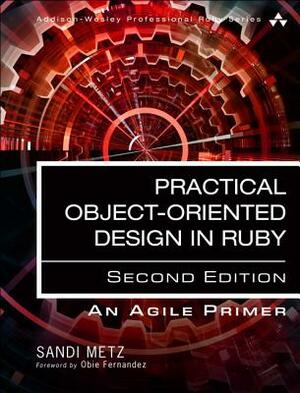Take a photo of a barcode or cover
Readalong
Practical Object-Oriented Design: An Agile Primer Using Ruby
Hosted by xoruby
01 Jan 25 - 12 Mar 25 |
173 participantsAbout
Forums
Preface
Target: 08 Jan 2025
Introduction
Target: 08 Jan 2025
- What's your experience level with Ruby?
- Where are you located geographically?
- What's one other fact that other folks should know about you?
Chapter 1: Object-Oriented Design
Target: 15 Jan 2025
- How would you contrast procedural and object-oriented programming based on the chapter's explanation?
- Think about a project you’re currently working on. What criteria can you use to determine successful design in the next feature that you build?
- Any other thoughts or questions you have on this chapter?
Chapter 2: Designing Classes with a Single Responsibility
Target: 22 Jan 2025
Forum unlocked when you reach 4% in the book
Chapter 3: Managing Dependencies
Target: 29 Jan 2025
Forum unlocked when you reach 11% in the book
Chapter 4: Creating Flexible Interfaces
Target: 05 Feb 2025
Forum unlocked when you reach 20% in the book
Chapter 5: Reducing Costs with Duck Typing
Target: 12 Feb 2025
Forum unlocked when you reach 29% in the book
Chapter 6: Acquiring Behavior Through Inheritance
Target: 19 Feb 2025
Forum unlocked when you reach 36% in the book
Chapter 7: Sharing Role Behavior with Modules
Target: 26 Feb 2025
Forum unlocked when you reach 48% in the book
Chapter 8: Combining Objects with Composition
Target: 05 Mar 2025
Forum unlocked when you reach 56% in the book
Chapter 9: Desiging Cost-Effective Tests
Target: 12 Mar 2025
Forum unlocked when you reach 83% in the book
